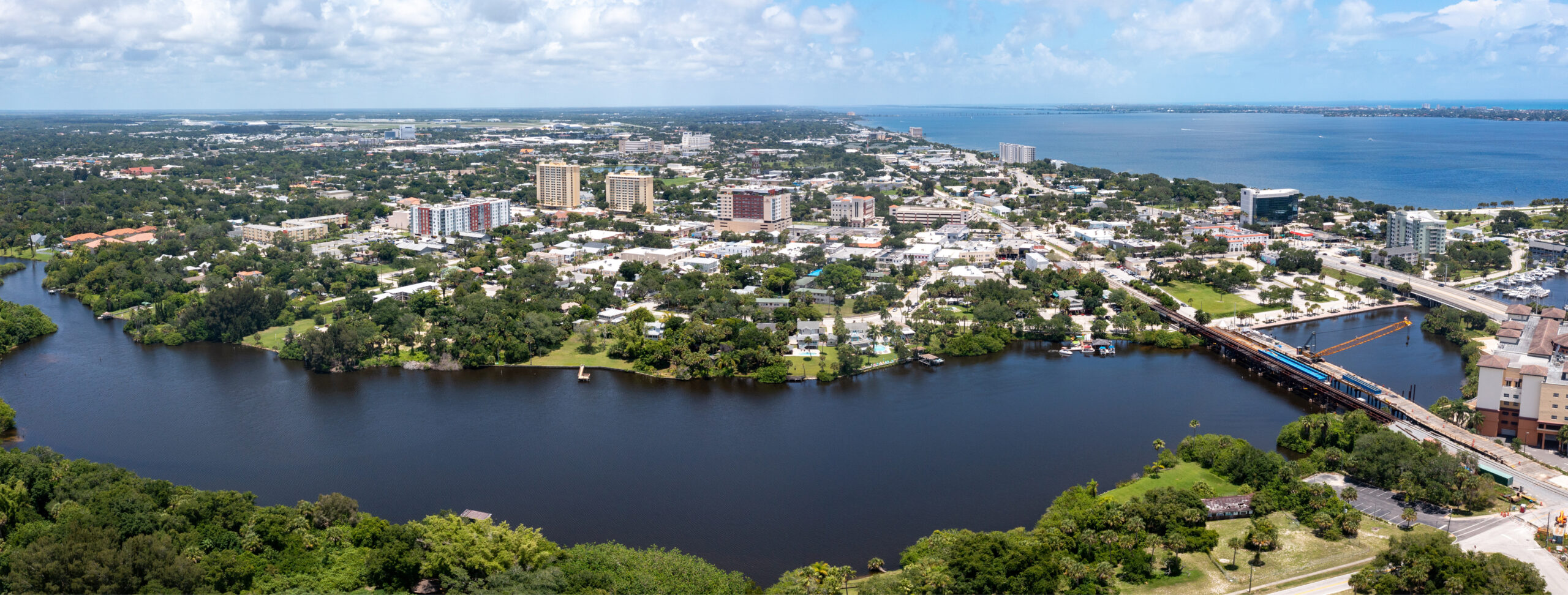Driving under the influence is a serious crime for anyone, but for those holding a Commercial Driver License (CDL), the stakes are even higher. The rules surrounding CDL holders are strict, and the penalties for violations can be severe, impacting both their personal lives and professional careers.
Melbourne DUI Defense Attorneys
You’ve worked hard to obtain and keep your CDL. However, one bad decision or misunderstanding could force you to change careers or face unemployment. The DUI defense attorneys at Germain Legal are ready to provide you with the representation you deserve.
Our office is located in Melbourne, Florida and we proudly serve the surrounding communities of Palm Bay, Titusville, Rockledge, Merritt Island, Cocoa, and Satellite Beach in Brevard County, Vero Beach and Sebastian in Indian River County, Deltona and Dayton Beach in Volusia County, and Kissimmee and Poinciana in Osceola County.
Contact Germain Legal by calling (321) 775-3559 or submit an online form today to start building your defense.
What Is a CDL DUI?
In Florida, the legal blood alcohol concentration (BAC) limit for drivers of commercial vehicles is lower than the standard BAC limit. For CDL holders, the limit is 0.04 while driving a commercial vehicle, as opposed to 0.08% for other drivers. For comparison, Florida sets the “drunk driving limit” at 0.05 BAC for non-commercial drivers.
According to Florida Statutes Section 316.193, a Commercial Driver License (CDL) DUI occurs when a person operating a commercial motor vehicle (CMV) is found to have a blood-alcohol concentration (BAC) of 0.04 or more or is under the influence of alcohol or any controlled substance that impairs their ability to drive safely.
Consequences for CDL Holder’s License
| Offense | Penalty |
| First DUI Offense | Loss of CDL for at least 1 year |
| First DUI Offense in a CMV placarded for hazardous materials | Loss of CDL for at least 3 years |
| Second DUI Offense (Any vehicle) | Loss of CDL for life |
| DUI involving controlled substances | Loss of CDL for life |
| Refusal to undergo blood alcohol testing | Loss of CDL for at least 1 year |
| DUI causing fatality | Loss of CDL for life |
Penalties for DUI
| Offense | Penalty |
| First DUI Offense | $500 – $1,000 fine, Up to 6 months jail time (1st-degree misdemeanor) |
| First DUI Offense with BAC of 0.15 or higher, or with a minor in the vehicle | $1,000 – $2,000 fine, Up to 9 months jail time (1st-degree misdemeanor) |
| Second DUI Offense | $1,000 – $2,000 fine, Up to 9 months jail time (1st-degree misdemeanor) |
| Third DUI Offense (within 10 years of prior offense) | $2,000 – $5,000 fine, Up to 5 years jail time (3rd-degree felony) |
| DUI Causing Serious Bodily Injury | Up to 5 years jail time (3rd-degree felony) |
| DUI Manslaughter | Minimum 4 years jail time, Up to 15 years (2nd-degree felony) |
Administrative Suspension
Commercial drivers arrested for DUI must act quickly, as they have only 10 days from the date of arrest to request a formal review hearing to challenge the administrative suspension of their license. If no formal review is requested within this window, the driver’s license will automatically be suspended, which can have significant career consequences.
CDL Disqualification
The disqualification of a CDL is effective immediately upon a DUI conviction or refusal to submit to testing. The driver may receive a temporary permit valid for ten days, allowing them to drive non-commercial vehicles during that time, provided they are otherwise eligible. This permit does not allow them to operate commercial vehicles, meaning they must find alternative transportation for work or other needs during the disqualification period.
Also, a commercial driver who is convicted of driving a commercial vehicle while in possession of drugs faces a one-year disqualification of their CDL. Similar to a DUI, during this one-year period, the driver is not eligible for a hardship license. After the disqualification period ends, they will need to pay a reinstatement fee to restore their CDL.
Reinstating a CDL
Reinstating a commercial driver’s license after disqualification is particularly difficult, as there are no options for hardship licenses for commercial driving. Once disqualified, especially for a second offense, the individual must consider a career change, as they are permanently barred from driving commercial vehicles.
Collateral Consequences
Employers in trucking and transportation industries have policies that prohibit employing drivers with a DUI on their record, often leading to immediate job loss. Even after the disqualification period ends, finding new employment can be extremely difficult, as the DUI conviction remains on the driver’s record and is often viewed unfavorably by potential employers. Additionally, certain job opportunities, particularly those involving the transportation of hazardous materials or passengers, may become permanently inaccessible. The loss of income during the suspension or revocation period can lead to significant financial strain.
What Are Potential Defenses in CDL DUI Cases?
Lack of Probable Cause: If law enforcement did not have a valid reason to stop the driver or did not observe signs of impairment before the stop, any evidence gathered afterward, including the results of chemical tests, might be challenged. This defense questions whether the stop itself was legal.
Improper Administration of Sobriety Tests: If field sobriety tests were not conducted properly, the results may be unreliable. CDL drivers can argue that the officer did not follow the correct procedures when administering these tests, which may lead to false indications of impairment.
Faulty Breathalyzer or Blood Test Equipment: The accuracy of breath and blood tests can be questioned if the equipment used was not functioning correctly or not calibrated as required.
Inaccurate Test Results Because of Medical Conditions: Certain medical conditions can affect the results of breath or blood tests. For example, individuals with diabetes or acid reflux may have elevated BAC readings even if they are not impaired. CDL drivers can use this defense to argue that the test results were skewed by their health conditions.
Involuntary Intoxication: If a CDL driver unknowingly consumed alcohol or a controlled substance, perhaps through spiked drinks or mislabeled products, they could argue that they were not aware they were impaired. This defense focuses on the lack of intent to consume alcohol or drugs.
Failure to Read Implied Consent Warnings: Florida law requires officers to inform drivers of the consequences of refusing a chemical test. If the officer did not properly inform the CDL driver of these consequences, any refusal to take the test could be contested as invalid.
Medical Necessity: In rare cases, a CDL driver may argue that they had to drive while impaired because of an emergency medical situation. This defense would focus on the necessity to act quickly in response to a health crisis, making it justifiable to drive despite impairment.
Violation of the Driver’s Rights: If the CDL driver’s rights were violated during the arrest or investigation process, such as being denied access to legal representation or being subjected to unlawful search and seizure, any evidence obtained during that time could be excluded.
How Can a CDL DUI Attorney Help Me?
Losing your CDL can mean losing your livelihood. A CDL DUI lawyer understands the specific rules and consequences that apply to commercial drivers and can help you tackle this challenging situation.
First, a CDL DUI lawyer will review all the details of your case. They know what to look for in the evidence, including how the traffic stop was conducted, how tests were administered, and whether all procedures were followed correctly. This careful review can help identify any weaknesses in the case against you.
Next, your lawyer will explain your options. You might feel overwhelmed by the legal process, but a lawyer can clarify the steps involved and what you can expect at each stage. Whether it’s negotiating a plea deal or preparing for trial, they will guide you in making informed decisions that align with your goals, such as minimizing penalties or avoiding a conviction.
Another key area a lawyer focuses on is protecting your driving privileges. With a CDL, even a suspension of your regular license can impact your commercial driving status. Your lawyer will work to prevent or minimize any license suspension or disqualification, so you can continue working.
If your case goes to trial, your lawyer will defend you in court. They will question the prosecution’s evidence, cross-examine witnesses, and argue on your behalf. Their goal is to achieve the best possible outcome, whether that means reducing charges, securing a favorable plea, or winning an acquittal.
Finally, a CDL DUI lawyer can help manage the consequences of a DUI charge. Even if the outcome isn’t entirely in your favor, they can assist with matters like seeking alternative penalties, such as reduced fines or community service, or exploring options to restore your driving privileges sooner.
Frequently Asked Questions
What happens if a CDL holder refuses to take a blood, breath, or urine test? If a CDL holder refuses to take a lawful blood, breath, or urine test, their CDL will be suspended for at least one year for the first refusal. If it’s a second refusal, they face a lifetime disqualification of their CDL. Refusal to submit to testing is also admissible in court, which can negatively impact their defense in a DUI case.
Can a CDL holder be disqualified from driving a commercial vehicle if they receive a DUI in their personal vehicle? Yes, a CDL holder can be disqualified from operating a commercial vehicle if they receive a DUI in their personal vehicle. A first DUI offense in a personal vehicle results in a one-year CDL disqualification, and a second offense leads to a lifetime disqualification, regardless of whether the offense occurred in a commercial or personal vehicle.
What is the impact of a DUI conviction on a CDL holder’s ability to obtain a “hardship” license? A CDL holder who has their license suspended or revoked because of a DUI conviction cannot obtain a “hardship” license to operate a commercial vehicle. This means they cannot legally drive a commercial vehicle during the suspension or revocation period, even if a hardship license is granted for personal vehicle use. They could potentially obtain a hardship license for driving a personal vehicle.
Can a CDL holder be charged with a DUI even if their BAC is below the legal limit? Yes, a CDL holder can still be charged with a DUI if their BAC is below the legal limit if there is evidence that their ability to operate the vehicle safely was impaired. Factors such as erratic driving, physical appearance, or failing sobriety tests can be used to support a DUI charge, even with a BAC under 0.04%.
What are the consequences for a CDL holder if they are caught driving a commercial vehicle with a detectable amount of alcohol under 0.04%? If a CDL holder is caught driving a commercial vehicle with a detectable amount of alcohol under 0.04%, they will be placed out-of-service for 24 hours. While this is not a criminal offense, it still has serious implications, as it removes them from duty and can impact their employment.
Can a CDL be reinstated after a lifetime disqualification for a DUI offense? Generally, a lifetime disqualification of a CDL for a DUI offense is permanent and cannot be reinstated. However, in certain circumstances, a driver may petition for reinstatement after 10 years if they have no other disqualifying offenses. The decision to reinstate is discretionary and often depends on the severity of the original offenses and the driver’s record during the disqualification period.
Are CDL holders prohibited from driving under the influence of drugs, and what are the consequences? Yes, CDL holders are prohibited from driving under the influence of any controlled substances, including both illegal drugs and certain prescription medications that impair driving ability. If a CDL holder is found to be under the influence of drugs while operating a commercial vehicle, they will face the same penalties as those for driving under the influence of alcohol, including disqualification of their CDL and possible criminal charges.
Additional Resources
Florida Statutes Section 316.193 – This law defines the offense of driving under the influence (DUI) in Florida. It outlines the penalties for various DUI violations, including fines, imprisonment, and mandatory installation of an ignition interlock device. The law also covers the consequences for repeat offenders and those causing injury or death while driving under the influence.
Florida CDL DUI and Administrative Suspension Laws – These laws specifically address administrative suspensions for CDL holders in Florida. They include penalties for DUI convictions, such as fines, imprisonment, and vehicle impoundment. The rules also cover conditions for license reinstatement and disqualifications for CDL holders.
FL CDL Disqualification Law – This law outlines the conditions under which a commercial driver’s license (CDL) holder can be disqualified from operating a commercial motor vehicle. It lists serious traffic violations that can lead to disqualification, including driving under the influence, reckless driving, and texting while driving.
FMCSA Rules on Alcohol for CDL Holders – The Federal Motor Carrier Safety Administration (FMCSA) has strict rules regarding alcohol use for commercial drivers. These rules prohibit the consumption of alcohol within four hours of going on duty or while operating a commercial motor vehicle. Drivers found in violation are immediately placed out-of-service for 24 hours.
Hire a CDL DUI Defense Attorney in Brevard County, FL
If you or a loved one have been charged with a DUI you need to contact an experienced DUI defense attorney immediately.
Our office is located in Melbourne, Florida and we proudly serve the surrounding communities of Palm Bay, Titusville, Rockledge, Merritt Island, Cocoa, and Satellite Beach in Brevard County, Vero Beach and Sebastian in Indian River County, Deltona and Dayton Beach in Volusia County, and Kissimmee and Poinciana in Osceola County.
Contact Germain Legal by calling (321) 775-3559 or submit an online form today to start building your defense.



